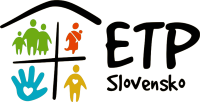Reflections on a workshop Building Hope
According to the Atlas of Roma Communities of 2013, in Slovakia there are 215 436 people living in 29 406 houses in concentrated settlements (segregated, separated settlements, streets or quarters of cities). 4 131 of these houses are shacks, in which 31 601 people live.
Since our model is based on our thorough understanding of the situation in the field, behind these stark numbers, we see stories of people, some with small and some with big ambitions, people with living but also with buried dreams and people who know what it feels like to be hungry. A roof over our head (and its quality) is among the basic human needs and is crucial in determining the quality of our life and possibilities for its improvement. Our experience shows that a missing roof above a person’s head not only limits their interest in education but in such harsh conditions, education is not even an option.
We are convinced that in the light of the existing constantly worsening situation, there must be no more hesitation. The time for decisive action is now. Many strategies and conceptions have already been drafted, but people in segregated settlements still live in the same conditions.
Our aim of the workshop was to help change the situation radically and start taking concrete steps. Innovations in Social Housing, which took place at the Ministry of Finance of the Slovak Republic on 22 October 2014. Representatives of both state and non-governmental organizations engaged in dealing with these issues had been invited.
We wanted to share our results and the experience we gained in the Project Building Hope and to discuss ways in which this effective model of self-help construction of family homes, financed from the clients´ own savings and a microloan, could be introduced into the State policies.
We were glad to discover that we had much common ground with the legislators and representatives of the State administration responsible for designing nation-wide solutions. These points included support for the legalization of building land, the self-help construction of family homes (which The Office of the Plenipotentiary for Roma Communities is planning to implement in the next programming period, or the support for the microfinance tools (loans) which are being prepared by the Slovak Investment Holding of the Ministry of Finance and which are to be co- financed from the structural funds.
The most positive words of support came from the representative of the Slovak Ministry of Transport, Construction and Regional Development. They are proposing systematic support for the model of self-help construction to be financed publically by way of complementing the products of the State Housing Development Fund, with loans intended for the target group who currently have no chance to access finance to realize their dream about better living. We are at the beginning of a long journey but we are undoubtedly moving in the right direction.
In respect to the new legislation prepared by the Slovak Ministry of Labor, Social Affairs and Family concerning the housing benefit, we propose that this benefit be provided also to citizens who do not currently meet the requirements (i.e. they are not the owners of a flat or a family house, nor are they flat tenants yet), but they are actively attempting to solve their housing issues – e.g. by purposefully saving for their own home. We propose that the housing benefit should to be equal to the amount saved by the beneficiary. This so called purposefully bound housing benefit would be realized as one-off payment after the saving has been successfully finished. There would be an identical, pre-determined savings period set for all savers.
Based on the outcomes of our Savings Program, in which more than 600 clients from low-income families have successfully saved on a long-term basis, we suggest that the match funding come from the one-off benefits for people in material need or from social loans provided by the municipality intending to invest in housing.
In the Conference discussions we were also reminded of the importance of extending the scope of social work (via social field work or the newly created community centers) with activities through which the client gains the competences for entering the labor market. One of the possible ways to acquire these competences is by self-help construction of one´s own home. Our next proposals was for the work which a long-term unemployed person undertakes on the construction of their first low-cost house should be categorized as work, thus making the person eligible for the activating benefit in material need. This would, among other things, result in the builders not having to leave the construction site to sweep the pavements!
We are convinced that State bodies now face a most significant challenge because citizens, municipalities, the third sector, and even Brussels, have all validated (and also awarded) such an innovative solution as Building Hope. Otherwise, the inhabitants of Roma settlements will never have feder dživipen (a better life). From the point of view of sustainable development, improving the quality of life of Roma will also bring benefits to the entire country. So, it is worth starting with those who live in homes that get approval for financial assistance, which constitutes 4 131 shacks. In these, at least 15 000 children are growing up. Otherwise, what is their future?
We are happy to note that, in many aspects, the State has plans in the near future reflect the experience of our project Building Hope, which is an incredible impulse for us to continue our work.

